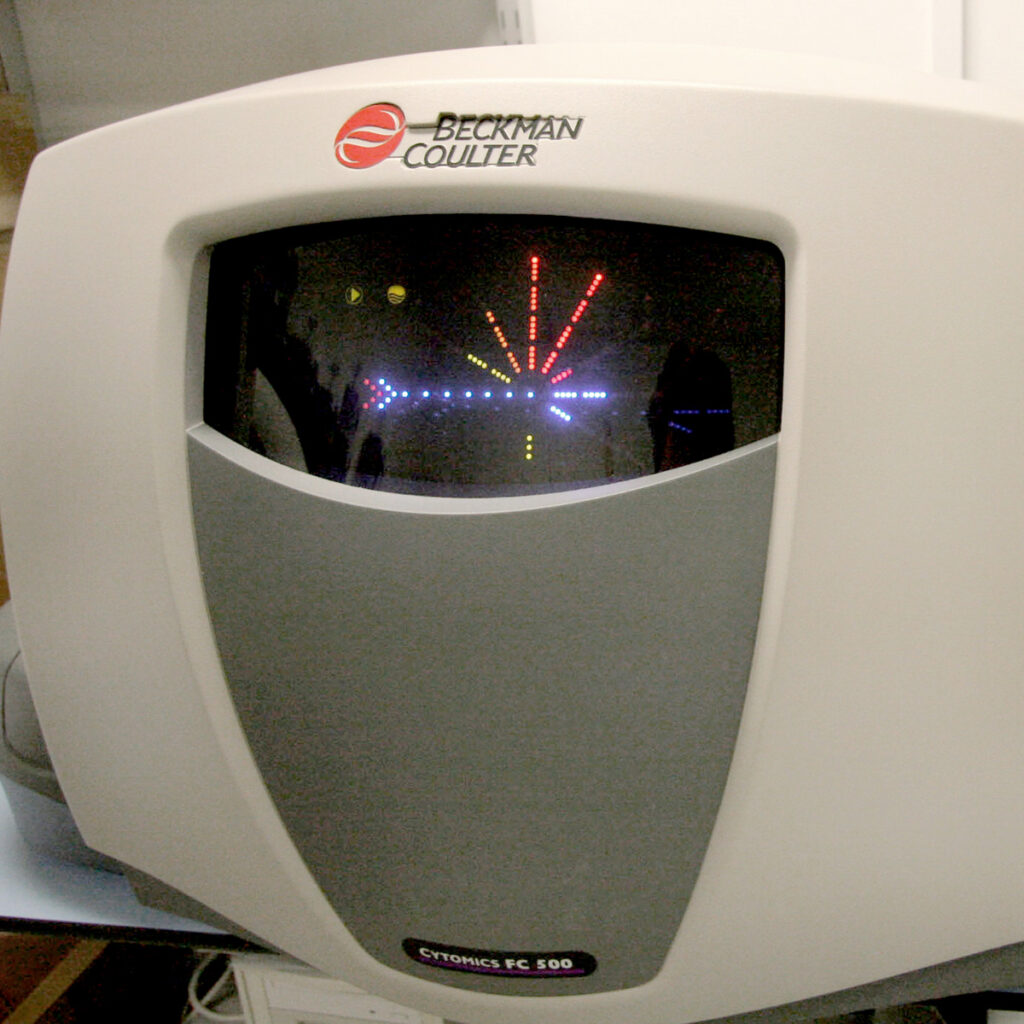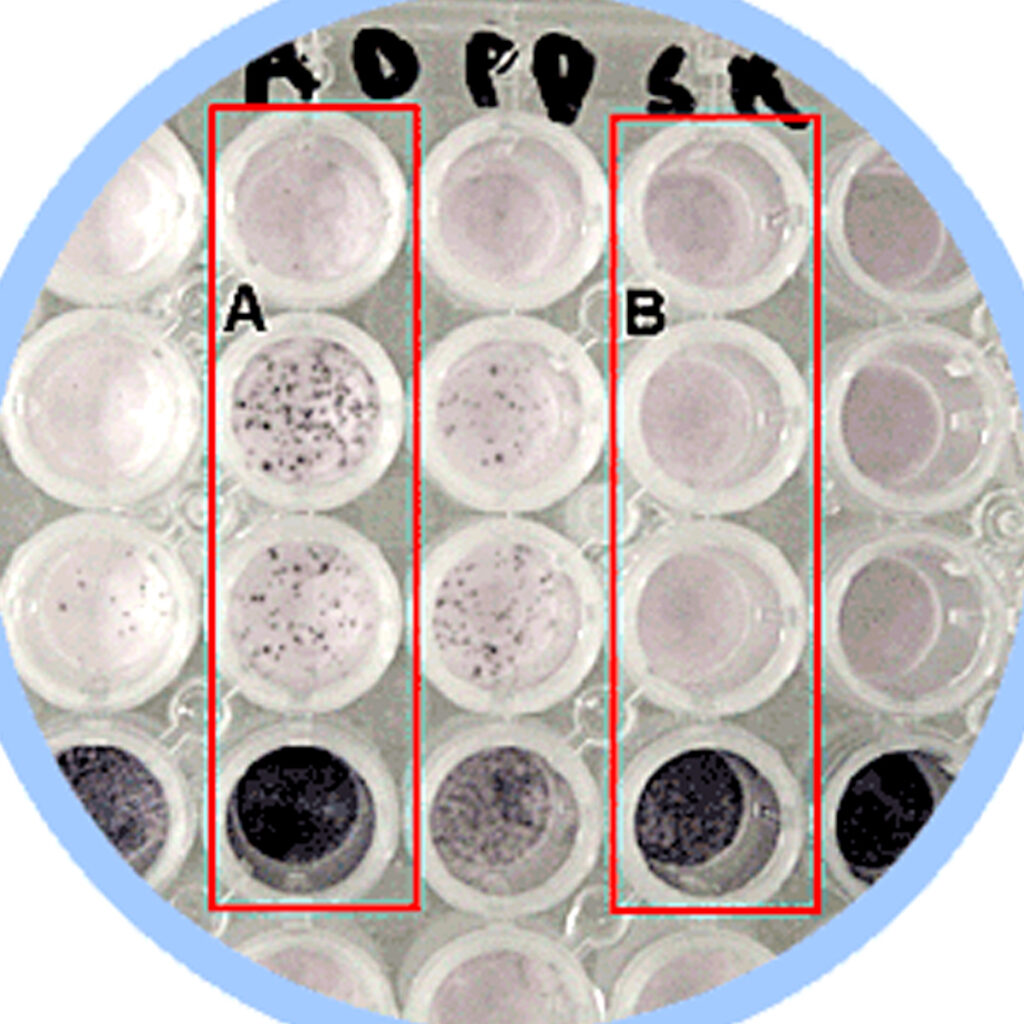Background

In the immunology laboratory cellular work is divided into three separate areas all of which can have very important consequences for patients. The bulk of laboratory cellular work is involved in the investigation of primary and secondary immunodeficiency. The second section is involved in diagnosis of Tuberculosis infection which is becoming far more prevalent in the UK. Finally scientists in immunology can study the nature of cancerous cells in patients with leukaemia.
Science

Both primary and secondary immunodeficiency is investigated in the clinical immunology laboratory. Primary immunodeficiency is a broad term for a spectrum of rare conditions that have a genetic basis, this means that people who have them are born with subtle mutations in their DNA resulting in functional defects in their immune systems. The extent and severity of the resulting immunodeficiency is extremely variable with patients often susceptible to different recurrent infections or sometimes having immune systems that attack their own bodies in an uncontrolled way. Diagnosing particular defects in these patients is important to decide on and justify appropriate and often demanding courses of treatment.
The term secondary immunodeficiency indicates that the symptoms do not have a direct genetic basis, instead the condition has been acquired. This can be due to a number of factors from drug induced immunodeficiency to conditions attributed to malnutrition. The predominant secondary immunodeficiency encountered in the clinical laboratory is Aquired Immunodefficinecy Synbdrome (AIDS) caused by the Human immunodeficiency virus. A patient with HIV infection is more susceptible to potentially life threatening pathogenic organisms because HIV infects and kills specific cells of the immune system called CD4 T cells that normally control infections such as Tubeculosis.
Laboratory

Immunodeficiency is diagnosed and monitored by looking at the frequency and function of important cells of the immune system. Firstly scientists working in the cellular laboratory can investigate the number of cells by using a technique called flow cytometry which uses artificially modified proteins called monoclonal antibodies to specifically label specialised cells that are important for healthy immune responses including T cells, B cells and Natural killer cells. Lasers are then used to identify individual cells based on there labels so providing us with actual numbers. Flow cytometry is also used to identify the large numbers of aberrant cancerous cells that arise in patients with Leukemia.
The other major area of immunodeficiency cellular investigation is measuring the functional competency of immune system cells by making use of “In Vitro” experiments. These are a group of laboratory methods that artificially recreate biological processes outside of the body. Scientists can separate specific cells, such as T cells from a sample of blood and then incubate them at 37ºC (body temperature) with substances that are derived from pathogenic organisms. Using radioactive substances that are incorporated in newly divided cells, cellular response can be measured by the total amount of radioactive substance integrated in the cellular population. An adaptation of this assay, called an ELISPOT, is used in the diagnosis of active or latent Tuberculosis (TB) infection by testing the ability of T cells to respond to molecules derived form the TB causing microorganism.
Talking Heads
Tom explains what it is like working in a Cellular Laboratory
